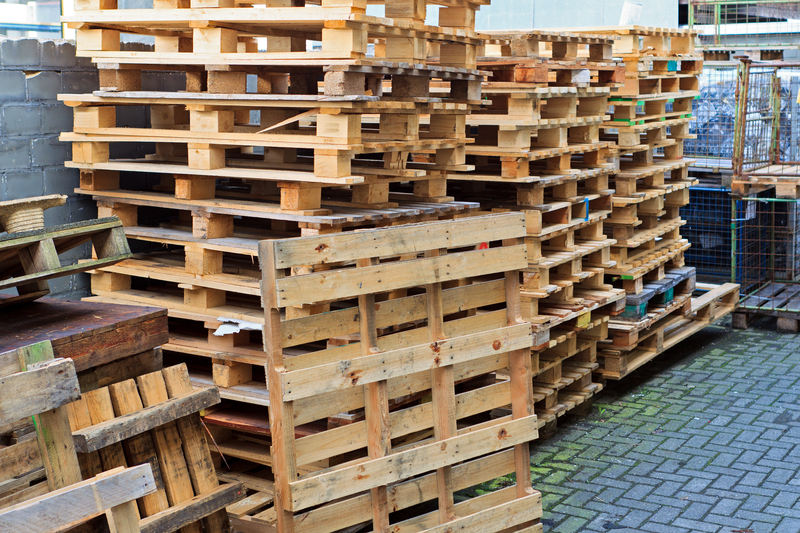Green Waste Management: Top 10 Proactive Measures
As environmental concerns increase globally, green waste management has become a pressing issue. Proper handling and disposal of organic waste can significantly contribute to ecological conservation. By implementing strategic waste management practices, communities can mitigate environmental harm and foster sustainability. Let's delve into the top 10 proactive measures for managing green waste effectively.
1. Composting
Composting is a natural process that transforms organic waste into nutrient-rich fertilizer. By composting at home or in community gardens, you can reduce landfill waste and produce beneficial soil amendments. Composting involves the decomposition of green waste, such as food scraps, garden trimmings, and leaves, under controlled conditions. This process can significantly decrease methane emissions from landfills and aid in soil conservation and reclamation.

2. Vermicomposting
Vermicomposting uses worms, primarily red wigglers, to break down organic material. This method is especially effective for household waste as it requires limited space and effort. The worms feed on food scraps and other organic residuals, producing a rich compost called vermicompost. Besides being eco-friendly, vermicomposting enhances soil quality, helping gardens and potted plants thrive.
3. Mulching
Mulching is a simple yet effective green waste management technique where garden waste, like leaves and grass clippings, is used to cover the soil. Mulch acts as an insulating layer that helps retain moisture, suppress weed growth, and improve soil fertility. In addition, mulching reduces the amount of organic waste that ends up in landfills, conserving both resources and energy.
4. Anaerobic Digestion
Anaerobic digestion is a biological process in which microorganisms break down biodegradable material in the absence of oxygen, producing methane and carbon dioxide. This process is commonly used to manage organic waste on a larger scale, such as in municipal waste facilities or agricultural settings. The biogas produced can be used as a renewable energy source, while the remaining digestate serves as a nutritious fertilizer.
5. Green Waste Collection Programs
Many municipalities offer green waste collection programs that facilitate the recycling and decomposition of organic materials. Participating in these programs helps divert green waste from landfills and ensures proper treatment. Residents can dispose of yard trimmings, prunings, and other biodegradable waste, which is then processed into compost or bioenergy.
6. Community Gardens and Composting Initiatives
Engaging the community in collective gardening and composting initiatives creates awareness about sustainable practices. Such programs educate individuals about the benefits of composting and encourage participation in communal efforts to manage green waste. By fostering a sense of environmental stewardship, community gardens play a vital role in promoting sustainable waste management.
7. Waste-to-Energy Technologies
Advanced waste-to-energy technologies convert organic waste into electricity or heat through processes like incineration and gasification. These technologies harness energy from waste while reducing its volume, providing a dual benefit of waste reduction and energy generation. Continual advancements in these technologies promise further integration into existing systems for improved efficiency.
8. Avoiding Contamination
To ensure the effectiveness of green waste recycling processes, it is crucial to prevent contamination with non-biodegradable materials. Proper sorting practices should be followed by separating plastics, metals, and treated wood from organic waste. By maintaining clean streams of organic waste, recycling centers can efficiently process the material into compost or bioenergy.

9. Public Awareness Campaigns
Raising awareness through educational campaigns on the importance of proper green waste management can significantly influence individual behaviors. Information can be disseminated via social media, workshops, or school programs, emphasizing the impact of responsible waste practices on environmental health and climate change mitigation.
10. Legislation and Policy Development
Governments play a critical role in fostering sustainable green waste management through the development of appropriate legislation and policies. By setting waste reduction targets, providing incentives for recycling, and mandating composting practices, authorities can drive widespread change. Collaborative efforts between policymakers, businesses, and communities are vital for long-term success in green waste management.
The Importance of Green Waste Management
The integration of these proactive measures in green waste management is essential for several reasons. Primarily, it reduces the volume of waste entering landfills, thus minimizing the environmental impacts associated with waste disposal. Additionally, managing organic waste efficiently conserves natural resources and reduces greenhouse gas emissions, particularly methane, a potent contributor to climate change.
Conclusion
Implementing proactive green waste management measures is not just an environmental necessity but also an opportunity to create circular economies and enhance local ecosystems. By incorporating these practices into daily life, individuals and communities can play a significant role in promoting sustainability and protecting our planet for future generations.
As we advance towards a more sustainable future, adopting comprehensive green waste management strategies will pave the way for healthier communities and a more resilient environment. To learn more about specific initiatives or how you can participate, contact your local environmental services or participate in community-led programs today.